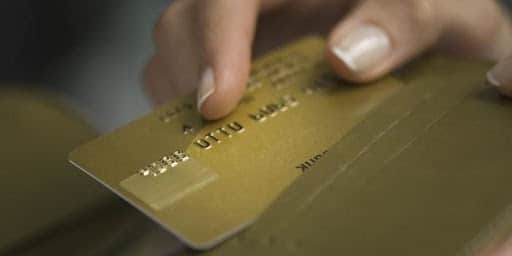Can you buy a money order with a credit card? And, if you could, would it be a good idea? The short answers are “sometimes” and “probably not—as it’s a high-cost choice.” This is often as a result of that credit card options for money orders are only found in very few outlets like the western union. So yes you can buy a money order with a credit card, but it comes with a price. Let’s find out more…
What is a Money Order?
A money order is a type of assured payment for a particular dollar sum that can be used to pay bills or transfer money to specific individuals. Money orders can be used in the same way as cash. However, unlike cash, you’ll get a receipt that helps you to monitor your funds and report a missing or stolen money order.
Money orders are generally restricted to amounts of less than $1,000. If you require more, you will either need to purchase several money orders or use a different method of payment.
What Are the Advantages of Using a Money Order?
- Money orders are sometimes used by people who do not have checking accounts to carry out large transactions, such as paying rent or making a large purchase from a person.
- For other people, it is a matter of preference. Most business owners often opt for this method of money transactions.
- If you’re concerned that using a check might lead to identity fraud because checks include your bank account number, a money order, which doesn’t include any of your bank account details, could be a better option.
- Money orders may also be used to transfer money abroad, such as to distant relatives.
The majority of money order sellers have locations in major cities around the world. However, before you buy a money order to send to another country, double-check that the receiver can cash it close to their home.
Where is the best place to get a money order?
Money orders can be obtained from a variety of locations. This often includes banks and credit unions, check-cashing and payday loan companies, grocery and convenience stores, and the post office. Military personnel may also buy them at military bases.
You’ll have to pay a small fee depending on the value of the money order. Fees differ depending on where the money order is issued; they’re usually a few dollars at most. Issuing fees at the post office, for example, vary from $1.25 to $1.75. The highest charge at Walmart is $0.88.
Can you buy a money order with a credit card?
Like we earlier mentioned, its a big YES!!! You can actually buy a money order with a credit card. However, to do this successfully, you’ll need to buy a money order with cash or a debit card. You cannot pay with a personal check because issuers need cash before issuing a money order. 7-Eleven stores and Western Union are the only locations where you can purchase a money order with a credit card.
If you intend to charge a money order, keep in mind that your credit card company may classify the payment as a cash advance, which has a number of drawbacks. With a cash advance, you’ll pay more interest than you would on a normal purchase—sometimes a lot more. Although you have a grace period before interest on a credit card transaction starts to accrue, interest on cash advances normally starts accruing right away. In addition to these fees, your credit card company can charge a cash advance fee of $20 or more.
In the long run, if you have a credit utilization ratio of more than 30%, getting a cash advance will damage your credit score. Furthermore, if you have a balance on your credit card, the issuer can apply your future payments to the purchase balance first, rather than the more expensive cash advance balance. This will make it more difficult to pay off your debt.
To avoid surprise charges, read your cardholder agreement carefully or contact your credit card issuer to see if purchasing a money order with a credit card is considered a cash advance.
What Is the Best Way to Fill Out a Money Order?
Money orders are simple to fill out, but it’s important that you do so correctly. If not, the receiver will be unable to cash it.
The name and address of the individual or company receiving the money order must be written on the money order. Since the money order will be checked against the recipient’s ID when they go to cash it, it’s a good idea to double-check the spelling first.
Make sure you sign the money order and get a copy. If you want to cancel the money order or if it goes missing and you need to show that you bought it, so you must have a receipt.
Money Order Scams and How to Avoid Them
Money orders have always been considered a legitimately safe way to send money. Unfortunately, forged money orders are often used by con artists to commit fraud. Your bank or credit union may take a week or more to discover the sham after you deposit a fake money order, at which point they will automatically withdraw the funds from your account. If you’ve already spent the money, this may be a problem.
To stay safe, keep an eye out for the following common money order scams:
Scam on the internet:
An online seller demands that you pay for your purchase with a money order. You give the money order, but the product is never delivered. So w when making a purchase with a money order, it’s best to do so in person. You’ll be able to hold the product in your hands before handing over the money order.
A bogus buyer:
someone who gives you a fake money order to buy something you’re selling. Most times, you may’ve already delivered the goods by the time you know the money order is fake. Furthermore, customers can request that you ship items to a private P.O. Box. This is a common warning sign of a scam.
This is an obvious warning sign of a scam.
Bogus Buyer’s Remorse:
Scammer buys something from you with a false money order. You cash the money order and get ready to ship the goods to them. However, they request that you cancel the order and receive a refund before you do so. They will agree to let you keep a portion of the payment in exchange for returning the rest of the money order. In the end, the check-casher may pursue you for fees as well as a return of the fraudulently issued funds if the payment is discovered to be fraudulent.
Rental reversal:
For a bed-and-breakfast or holiday rental stay, the scam artist sends a forged money order to pay for a non-refundable security deposit, as well as any or all of the fee. They cancel the reservation and request a refund right away. Before it’s discovered that the money order is a fraud, you deposit it, retain the security deposit, and give them the rest of the money.
Over-Payment Ploy:
Before it’s discovered that the money order is a fraud, you deposit it, retain the security deposit, and give them the rest of the money.
Scammers could give you a money order for more than the value of the item you’re selling. They then argue that it was a mistake and ask for the money back.
Deposit Assistance:
A stranger says they don’t have a bank account and needs you to deposit a money order for them and then give the funds to them.
For scenarios such as this, the Federal Trade Commission advises against sending a money order to someone you don’t know, people who claim they only accept money orders or people who ask you to keep the transaction a secret to avoid fraud.
However, there are a few other things you can do to stop money order scams:
- Make sure the money is there. Before you cash a money order, make sure it’s genuine by contacting the issuer listed on the back of the document.
- Keep an eye out for signs of forgery. These can be difficult for a beginner to find, but you can take the money order to an issuer’s location and have it inspected.
- Look for signs of tampering. Is it possible that the sum has been reduced or increased? If that’s the case, it might be a ruse.
- Money orders should not be used right away. After depositing a money order, wait a week or two before using the funds or issuing any refunds to the sender.
- Pressure tactics should be avoided at all costs. Scammers will pressure you to deposit the money order or give them a refund as soon as possible. They will try to elicit sympathy by stating that they need funds for an operation. Some people could try to intimidate you by threatening to sue you or destroy your online reputation. So, when it comes to money orders, be wary of someone who demands urgent action.
Buying a Money Order with a Credit Card Has Its Drawbacks
You can usually pay for a money order with a credit card, but it will be treated as a cash advance rather than a normal payment by the credit card company. Using your credit card to purchase a money order is almost never a smart idea, according to personal finance experts, due to the additional fees and interest charges you’ll incur. The following are the justifications:
It costs a lot of money
The fee for a cash advance is normally set at 5% or $10, whichever is higher. But you’d pay $10 for a $100 money order and $25 for a $500 money order.
A higher interest rate would be charged to you
The “cash advance APR” on most credit cards is higher than the payment APR.
There isn’t a time of grace.
Cash advances, unlike most credit card transactions, typically accrue interest right away. That means that the sum you owe will continue to rise from the day you get the cash advance before you pay it off completely.
There will be no bonuses for you
Cash advances do not gain points or count against minimum spends or other bonuses.
Paying it off can be difficult
When you pay the minimum amount due on your credit card, the card issuer chooses how to distribute it, which could be more toward lower-interest balances. If you have a daily spending balance on your bill, the minimum payments will not be applied to the cash advance, which will continue to accrue interest at the higher cash advance rate.
It’s a difficult task
You can only buy a money order with a credit card from a few big retailers. The United States Postal Service, for example, is one of the few that does not. A money order can only be purchased at the Post Office with cash, debit cards, or travelers checks.
Where Can I Buy Money Orders With a Credit Card?
Only 7-Eleven outlets and Western Union accept credit cards when purchasing money orders. If you intend to charge a money order, keep in mind that your credit card company may consider the purchase to be a cash advance, which has some serious consequences.
Can You Buy a Walmart Money Order With a Credit Card?
No, you cannot purchase a money order at Walmart with a credit card. Walmart exclusively takes cash and debit cards as payment for money orders, which can be acquired at any Walmart or Neighborhood Market Customer Service Desk or Money Services Center.
Can You Purchase a USPS Money Order With a Credit Card?
Only a few big retailers accept credit card payments for money orders. Most others, including the United States Postal Service, do not. For a money order, the Post Office, for example, will only accept cash, debit cards, or travelers checks.
Can I Use Credit Card for Moneygram?
Online transfers can be paid for with a bank account, credit or debit card (Visa or MasterCard). When you use a credit card, you may be charged a cash advance fee and interest.
Can I Use PayPal to Get a Money Order?
You can, for example, use Payko to purchase a money order online and pay with your PayPal account, which is linked to a credit card or bank account. However, you can only buy one $200 money order every day. This approach takes longer than other online bank transfers.
- Check Card: How to Check Card Visa, American Express, Stimulus (+ free tips)
- How to Endorse a Check for Mobile Deposit: All you Should Know
- ENDORSE A CHECK: How to Endorse a Check to Someone Hitch-free
- BACK OF CHECK: How to Sign, What to Write & Wrong Endorsement Solutions
- What Is CREDIT CARD BALANCE/TRANSFER: How It Works, Positive and Negative Balance






